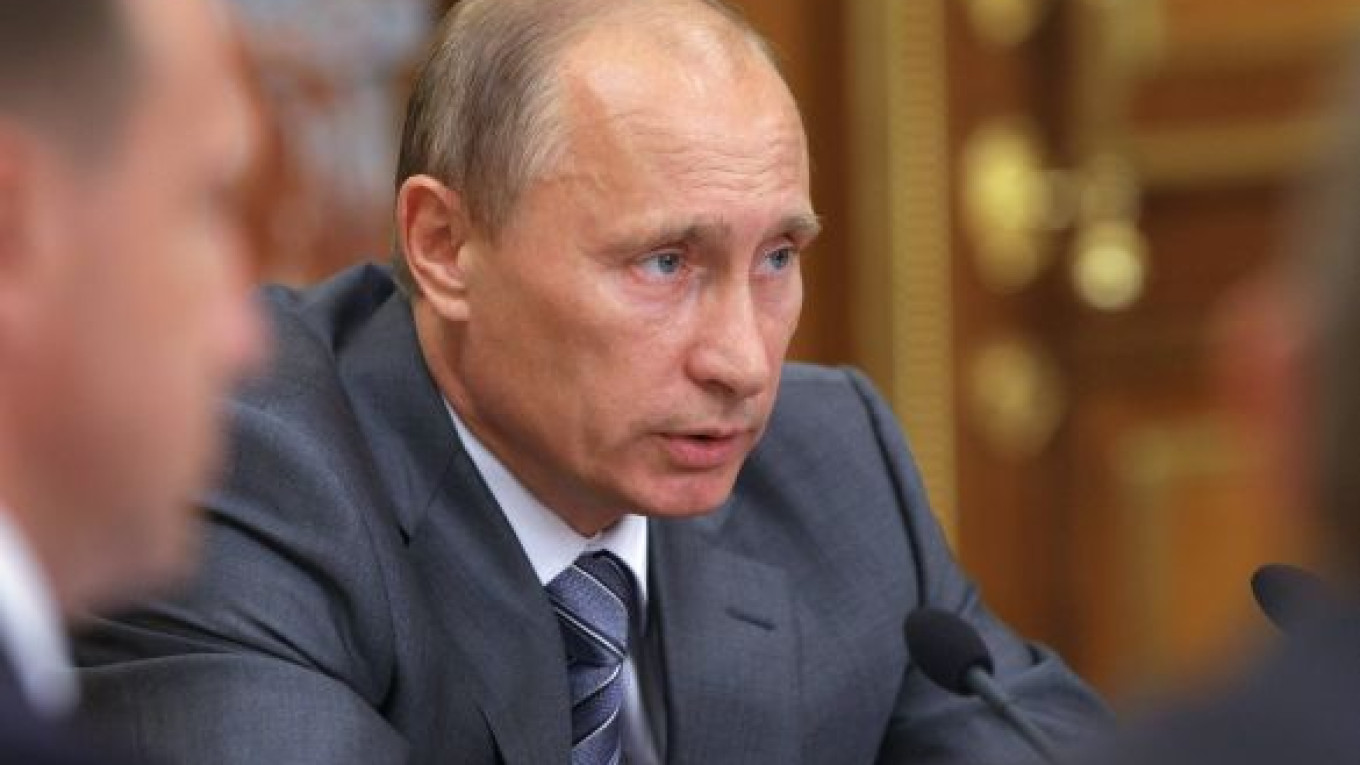Russia will retain tax breaks in 2011 for producers developing new oil and gas deposits that require large capital outlays, though an extraction tax increase will go ahead, Prime Minister Vladimir Putin said Wednesday.
Tax increases are necessary for the government to meet its spending plans, including a 9 percent rise in pensions next year, Putin said during a government meeting in Moscow.
While the government must have sufficient funds, "we don't have the right to get excessively carried away with borrowing," Putin said. "We also don't think it wise to raise taxes across the board."
Russia may boost oil and gas extraction levies and tax copper and nickel exports to narrow the budget gap.
The Finance Ministry proposed a 61 percent increase in the gas extraction tax next year, a 6 percent increase in 2012 and a 5.4 percent in 2013. The oil extraction tax may rise to 6.5 percent in 2012 and 5.4 percent in 2013, according to the proposal.
The tax changes must still be formally approved by the government.
"In some sectors of the economy where tax rates are low during a prolonged period and where external terms of trade are favorable, we consider it possible to increase the fiscal burden," he said.
Putin reiterated his estimate of a budget shortfall this year of less than 5 percent of gross domestic product, down from 5.9 percent in 2009, as the world's biggest energy exporter recovers from last year's record 7.9 percent contraction.
"We are not in a position to take on excessive borrowing. The results of such irresponsible policy are obvious from our recent history as well as the examples of some states today," Putin said, referring to Russia's 1998 default.
The Finance Ministry is proposing a privatization plan, including selling stakes in the country's top companies, that would bring $29 billion in revenue in three years and would help cover budget shortfalls.
In April, the government raised $5.5 billion through a eurobond issue and can borrow much more with sovereign debt still below 10 percent of GDP. But Putin said he was reluctant to heavily tap debt markets.
The shortfall is set to narrow to 3.6 percent of GDP next year, 2.4 percent in 2012 and 1.5 percent in 2013, Deputy Finance Minister Sergei Storchak said last month.
Russia plans to borrow 1.5 trillion rubles ($50 billion) next year, 1.3 trillion rubles in 2012 and 931 billion rubles in 2013, Storchak said, citing preliminary estimates in the government's borrowing program. The country will meet 90 percent of its borrowing needs on the domestic market, he said.
The Economic Development Ministry is set to raise this year's economic growth forecast from the current 4 percent, Deputy Economic Development Minister Andrei Klepach said Tuesday. The economy expanded an annual 5.4 percent in the three months through June, he said.
That compares with 2.9 percent growth in the first quarter, according to the State Statistics Service.
Pensions will rise 9 percent in 2011 from this year’s levels, and the average pension will reach 8,780 rubles ($290) per month, Putin said.
(Bloomberg, Reuters)
A Message from The Moscow Times:
Dear readers,
We are facing unprecedented challenges. Russia's Prosecutor General's Office has designated The Moscow Times as an "undesirable" organization, criminalizing our work and putting our staff at risk of prosecution. This follows our earlier unjust labeling as a "foreign agent."
These actions are direct attempts to silence independent journalism in Russia. The authorities claim our work "discredits the decisions of the Russian leadership." We see things differently: we strive to provide accurate, unbiased reporting on Russia.
We, the journalists of The Moscow Times, refuse to be silenced. But to continue our work, we need your help.
Your support, no matter how small, makes a world of difference. If you can, please support us monthly starting from just $2. It's quick to set up, and every contribution makes a significant impact.
By supporting The Moscow Times, you're defending open, independent journalism in the face of repression. Thank you for standing with us.
Remind me later.


